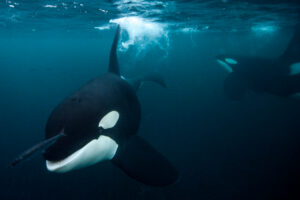About worms and other explorers
(Nautilus/ZACH ST. GEORGE) It makes sense for organisms to seek food, water, sex, shelter, rest, wealth, or any of the other myriad nourishing and pleasant things in life. But what is the good of deducing the nature of gravity, or of going to the moon?
A simple answer is that we never know if what we learn today might come in handy tomorrow. Take worms, for example. They’re incorrigible optimists, says Sreekanth Chalasani, a neurobiologist at the Salk Institute of Biological Sciences, in California. He studies Caenorhabditis elegans, a common, millimeter-long species of roundworm. During experiments, he will put a worm on a big patch of bacteria (its favorite food), surrounded by plenty of potential mates. “What’ll it do? It’ll leave that patch, and go looking for something more,” he says. “There’s no evidence that there’s something better outside. This is the best food you can give it. It’s craziness!”
Whether you’re simply abandoning your food patch, or flying into space, exploring does seem a little nuts—except, of course, you never really know if the food will run out. From an evolutionary perspective, Chalasani says, there’s good reason to keep looking. Information helps us make better choices and adapt to a changing environment.
Curiosity is not just wanderlust, though. We’re curious about specific things, and different people are interested in different specific things. Some are hobbyists, seekers of the arcane, others jacks-of-all-trades. This divergence of interests tells us that something beyond a tendency to roam must be guiding each of our unique obsessions.
Read some possible answers in the full article.






